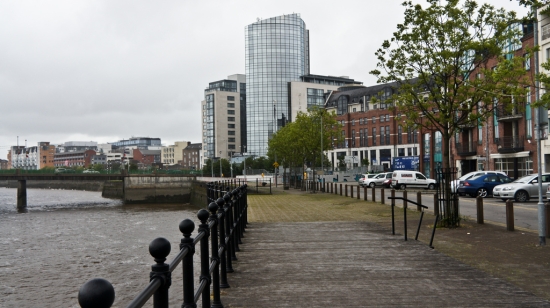An Irish city has declared itself “open for business” by setting the lowest commercial rate in the country’s history.

The landmark 15.8 per cent reduction in commercial rates now makes Limerick the cheapest place in Ireland to own and manage retail and business premises.
Once considered one of the most expensive places in Ireland to run a business, the city council — which merges with the county council this July — has recently introduced several measures to attract both entrepreneurs and shoppers to the city centre. Limerick already boasts the state’s lowest commercial rents and parking charges.
The 15.8 per cent reduction will now bring about a unified annual commercial rate for all of county Limerick, prior to the merger of the two authorities. Previously business owners were compelled to pay a multi-tier city and county charge based on the valuation of their property.
“The value of this rate reduction equates to €4.59m (£3.8m) going back to the ratepayers and should significantly help businesses to remain competitive and will, for the first time in our history, bring about a single rate for Limerick,” council manager Conn Murray told the Limerick Post.
“This unprecedented reduction will help stimulate the local economy and shows the commitment of Limerick City Council to businesses in order to generate employment and create an environment for continued growth and prosperity.”
Both councils have been implementing various mergers and cost cutting exercises since 2008 in an effort to reduce the differences between the authorities. “The commercial rates reduction will provide a platform on which the new merged authority will continue to lead and ensures that Limerick remains a key destination for indigenous and foreign companies, now and in the future,” added Murray.
Described as a springboard for the future, the reduction attracted unanimous cross-party support. Fine Gael Councillor Maria Byrne, one of only two commercial ratepayers on Limerick City Council, believes the cut in the property-based charge for businesses will free retailers in the city to create jobs. “Businesses now have more money to plough back and part of that investment will be in hiring more staff and creating new jobs,” she said.
Labour councillor, Joe Leddin, added: “By adopting this new rate Limerick is sending a clear message that the city is very much open for business and we are determined to redevelop the city centre through a combination of public and private investment. No one likes to see empty shop units and derelict buildings and for every empty retail or shop unit there are human stories and job losses involved.”
With non-domestic rates in England and Wales frequently cited as the leading cause of retail failures and empty high street properties, businesses on this side of the Irish Sea will be hoping that the situation is addressed as soon as possible.
Previous Post
UK Business Confidence hits 20 Year High